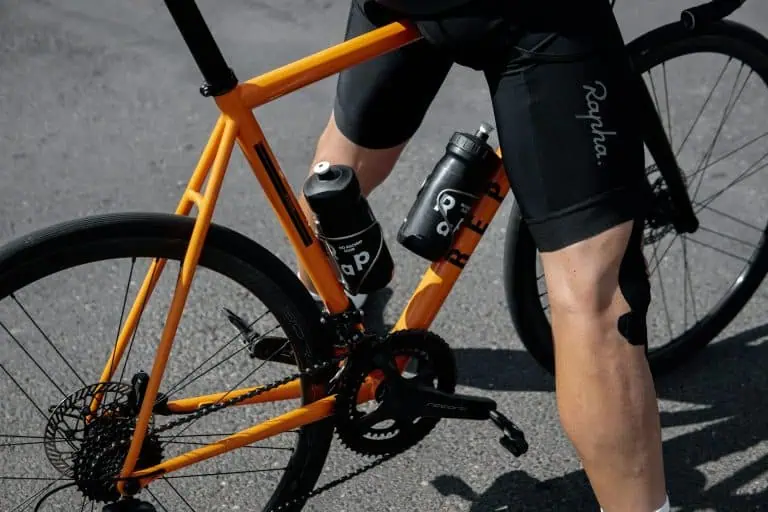Pros and Cons of Folding Bikes – Are They Worth It?

Folding bikes have gained popularity for their convenience and versatility, making them a favorite among commuters and urban dwellers.
However, as with any significant purchase, it’s crucial to weigh the pros and cons to determine if a folding bike is the right choice for you.
This article delves into the various benefits and drawbacks of folding bikes, helping you make an informed decision.
Whether you’re motivated by practicality, storage solutions, or the desire for spontaneous travel, understanding these factors will guide you towards a bike that suits your needs and lifestyle.
20 Pros of Folding Bikes
- Perfect for Commuters: Folding bikes simplify commuting, whether you’re cycling or using public transport.
- No Storage Hassles: Easily fold and store your bike at home or the office, keeping it out of the way.
- Travel-Friendly: These bikes can accompany you on trains, buses, and planes, fitting most travel regulations.
- Reduced Theft Risk: Thieves typically target standard bikes, making folding bikes a less attractive option.
- Spontaneity: Be ready for spontaneous trips, as folding bikes are easy to pack and go.
- Hotel-Friendly: Hotels are more likely to accept bagged folding bikes than dirty, full-sized bikes.
- Lightweight: Designed to be lighter, folding bikes are easier to carry without straining your back.
- No Need for Bike Racks: Transport your bike in your car’s trunk or back seat, eliminating the need for an external rack.
- Convenient for Hitchhiking: Carrying a folding bike is more manageable and convenient when hitchhiking.
- Great Conversation Starters: Folding bikes can spark interesting conversations, helping you expand your social network.
- Easy Mounting and Dismounting: The step-through frame design makes it simpler to get on and off the bike.
- Joint-Friendly: Cyclists with arthritis find these bikes gentle on their joints.
- Practical and Agile: Folding bikes are maneuverable and handle well in traffic.
- Clean Storage: Using a bike bag prevents grime, oil, and dirt from getting on your floors.
- High-Quality Standards: Folding bikes are built to stringent manufacturing standards, often resulting in higher quality.
- Added Upgrades: Many manufacturers now include features like racks, panniers, and premium tires.
- Advanced Materials: The industry is incorporating higher-grade materials like carbon fiber and titanium.
- Variety of Weights: Folding bikes are available in a range of weights to suit different needs.
- Quick Folding: It takes just seconds to fold the bike, saving you time.
- Improved Security: Knowing your bike is safe inside rather than outside can boost your mental well-being.
Read more: Bicycle Helmet Laws in America
20 Cons of folding bikes
- Higher Cost: The engineering required for folding bikes makes them more expensive.
- Bumpy Rides: Small wheels can lead to a bumpier ride and potential discomfort, especially on rough roads or potholes.
- Less Comfortable: For those seeking maximum comfort, full-size bikes are a better choice.
- Not Built for Speed: Folding bikes prioritize convenience over speed, so they aren’t ideal for speed enthusiasts.
- Limited Part Interchangeability: Repairs often require specific parts from the manufacturer, limiting interchangeability.
- Unwanted Attention: Folding bikes attract a lot of attention, which might not be desirable if you prefer to stay low-key.
- Faster Component Wear: Hubs, rims, and tires tend to wear out faster, increasing maintenance costs and concerns.
- Proprietary Parts: The lack of a market for generic components means higher prices for proprietary items.
- Limited Availability: Not all retailers or websites stock folding bikes, making them harder to find.
- Lower Weight Capacity: Folding bikes have limited hauling capacity, which could be a drawback for those needing to carry heavy loads.
- Frame Fragility: The hinges on folding bikes can weaken the frame, making them more fragile.
- Less Efficient: You’ll expend more energy riding a folding bike compared to a standard one.
- No Suspension: The lack of a suspension system makes off-road and gravel riding uncomfortable.
- Potential Ridicule: Larger riders may feel self-conscious or face ridicule on a small folding bike.
- Reduced Fitness: People with folding bikes tend to ride less, which might affect fitness levels.
- Lower Stiffness: Folding bikes generally lack the stiffness of standard bikes.
- Weight Limitations: Not all folding bikes can accommodate heavier riders.
- Safety Concerns: Folding bikes may not be as safe as standard bikes.
- Efficiency of Folding: Cheaper models may have a less efficient and slower fold-down process.
- Buyer’s Remorse: Without being prepared for the downsides, you might regret purchasing a folding bike.
To fold or not to fold; that is the question
Having weighed the pros and cons, and considering your budget and intended use, you likely have reached a conclusion based on practical considerations rather than just aesthetics.
As folding bike designs, refinements, and engineering continue to advance, it’s essential to ask yourself: Am I willing to invest in the quality and performance I need? Unlike regular bikes, the technology for folding bikes is still evolving.
In summary, opting for a cheap folding bike is not advisable and could lead to a disappointing riding experience. Remember the old adage: You get what you pay for.






